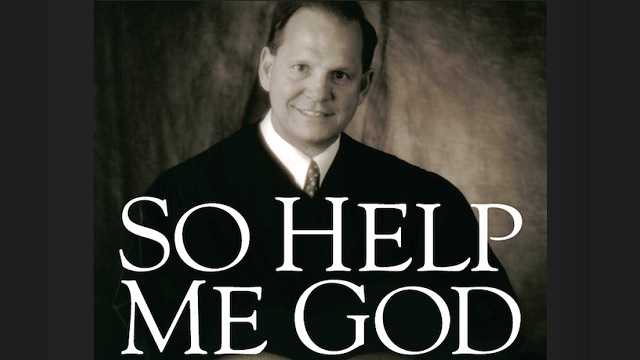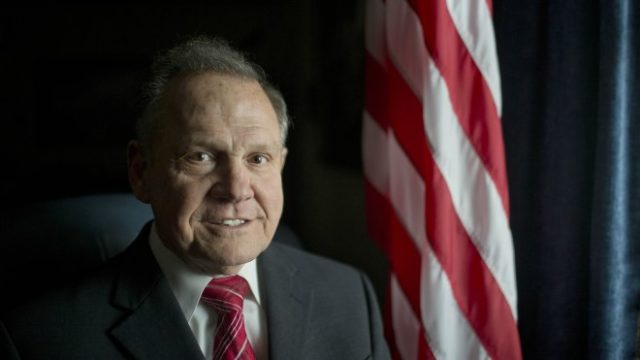Does William Wilberforce Make the Case for Roy Moore?
William Wilberforce was a 19th Century English political leader, devout Christian and the driving force behind Great Britain’s ban on slavery. He employed a principled Biblical understanding of the inherent value of every person and a practical willingness to compromise and take very small steps at times.
He is revered — by those who know his story. He was as morally upright as they come, although he would have decried such a description. His Christian life was the central focus of his life and he was a relentless fighter for what he believed was right — despite being barely five feet tall and sickly his entire life.
So for the voters of Alabama, including many Christians who are unsure if they can vote for Roy Moore, perhaps Wilberforce provides a way of measuring the decision by a man who more than understood the dilemma. It’s not as simple as maintaining total purity in whom one will support, or the end justifies the means.
Wilberforce was at once both a moral immediatist in abolishing slavery — he believed it must be 100 percent dismantled immediately — and a strategic incrementalist with a long-term view to take each necessary step to reach abolishment. His style and exhortations could in a sense be used to argue against a vote for Moore. But his actions tended more towards a vote for Moore.
Clarke Forsythe, M.A. in Bioethics from Trinity International University, wrote of Wilberforce in Politics for the Greatest Good:
“Although Wilberforce sponsored a motion for general and immediate abolition annually for several years, abolition came not immediately and totally, but in intent and in effect, incrementally. The slave trade was incrementally reduced by regulations and partial prohibitions, and those incremental reductions were tied, in public debate, to issues of national interest rather than strong arguments of morality – “justice” and “humanity” – which were reserved until the final stroke. The incremental reductions served to eliminate the fears raised by the claims of the slave traders. Though Wilberforce and his allies had the strongest moral motivations, they exhibited strategic, tactical and rhetorical flexibility in their actions and arguments in large part because they stayed focused on the end result and did not confuse the goal with their motivations.”
Compromise and sacrifice
Wilberforce’s choice to introduce a bill every year for the immediate abolition of slavery was a decision that politically eliminated him from ever becoming Prime Minister, which many thought he could probably obtain. But after going nowhere a few rounds, he began a more long-term approach that some refer to as incrementalism.
He was able to pass a bill banning the slave trade in certain parts of Africa and to certain parts of the colonies. It was a tiny step to slow the trade. He passed a bill limiting the number of slaves that can be shipped on British ships and a series of proposals called “amelioration bills” for better living conditions for slaves. This was argued on the basis of creating “humane” conditions on slave ships. Clanging words to our ears, but another step in reigning in some of the suffering by reducing the total trade.
These and other bills acted to reduce the profit and value of slavery. That, in turn, reduced the political support for the slave trade until it finally reached the point that Wilberforce and his allies in Parliament could bring the hammer to the cracking institution and finally destroy slavery in Great Britain and throughout the British Empire.
To accomplish this, Wilberforce not only compromised on immediate abolition, but he worked consistently on the incremental bills with members of Parliament who supported the slave trade and even participated profitably in it. He could be criticized for cooperating with slaver interests and not fighting to get full abolition sooner. And it was surely distasteful at times. But historians generally agree that without the incrementalism that reduced the political support, there was too much power in the slave trade to get full abolition passed.
The Wilberforce model has served as a bit of a guide — although not unanimously — for those who believe abortion is as morally abhorrent as slavery. Laws such as banning abortions once a baby in the womb is pain capable, waiting periods and requirement on mothers to see an ultrasound are in line with incrementalism even though the two issues are not completely analogous.
Tying these together a bit, the difference between Roy Moore and his opponent, Doug Jones, on the issue of abortion could not be more stark. Moore is pro sanctity of life from conception while Jones favors a woman’s right to kill her baby until the moment of birth.
Where would Wilberforce stand on this option, when Moore has a more questionable moral past than what is known about Doug Jones?
If Wilberforce had maintained a personal purity on who he would work with and what he would compromise — and stuck with total immediacy regarding the end of slavery rather than taking some bad to get more good — it seems unlikely he would have led the abolishment of slavery and that wicked institution would have continued to destroy lives for years or decades.
Can the same argument be made for Moore regarding abortion and federal judges who would rule more strongly in favor of personal freedoms — and possibly overturn Roe v. Wade and expand religious freedom? Is that an acceptable trade? Alabama voters will have to decide that one.
RELATED ARTICLE: Roy Moore’s lead over Doug Jones increases in new poll
EDITORS NOTE: This column originally appeared in The Revolutionary Act.


